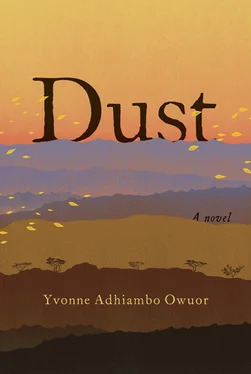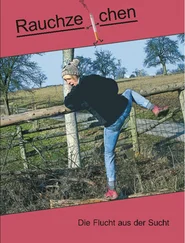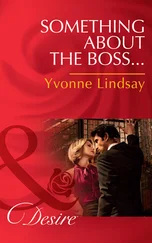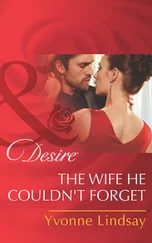Nyipir gives Ali Dida Hada a look before shuffling to sit next to his son’s unfinished grave.
THE HOUSE CREAKS. UPSTAIRS, AJANY PEEKS INTO A ROOM FULL of books. A pale-orange triangle of light falls on two shapes. On the floor, the clay image of Hugh Bolton’s face, and on the ancient couch, a sleeping man whose restlessness tosses him from left to right. She walks over to Isaiah’s inert body with a Maasai blanket. Hair strands cover his forehead. She pushes them away before she covers his body with the cloth. She glances at Hugh’s books on the shelf, then leaves the room, stepping over the sculpture on the floor.
Nyipir stops by the library doorway. In the dimness, he sees Hugh Bolton’s head leering at him. He grabs at his palpitating heart, holding on to the doorjamb. He waits for movement or speech. Nothing happens.
He creeps into the room — he no longer feels it belongs to him — and approaches the image. Hard clay. He lifts his head to look at the sleeping Isaiah.
Blood does call to blood.
Nyipir is also thinking of Burma: his father, his brother.
Nyipir waits.
“Isaiah William?” he whispers loudly.
Isaiah sleeps.
“Isaiah,” he calls.
Isaiah leaps up with a sharp intake of breath as he sees a shadow rising from the ground.
“Isaiah, it’s me,” Nyipir says.
“Sir?” Isaiah rubs his eyes.
“You had questions,” Nyipir reminds him. “I’ll answer them.”
Isaiah is swaying on his feet. “Now?” The odor of fear as Nyipir approaches him. He tenses, remembering the last night he had been here.
Nyipir sighs. “Sit down.” He, too, collapses on the couch, saying, “Before you speak, hear me out.”
The candlelight merges their two shadows so that on the walls, they are become one humped dark form.
Nyipir starts, “One day, Isaiah, I was on a boat in the middle of our lake. I saw neither east nor west, only water. Even though I had grown up close to water, it was only then that I thought to ask how boatmen saw passages on a sheet of water. How do you know where to go? The boatman said, You carry the way . I wondered, How can I find it? He said I should ask my eyes to show me where to look. I thought he was joking. Ask my eyes? How? He laughed at me, Isaiah. Said that question revealed my dense blindness.”
Isaiah shifts.
Nyipir continues: “But after he had left me on the shore, he shouted back: Go to the beginning. Every lake holds the memory of its mother, it is to her it strives to return, imagining roads that we follow home .”
Outside skittering, a strangled creak. Inside, silence.
Nyipir says, “Beginnings. That’s why you are here.”
Isaiah asks, “My father?”
“What do you see?”
“His house, his books, his art … his memories …”
Stillness
Then Nyipir says, “He is here.”
More stillness.
“Can I see him?”
Silence.
Isaiah is cautious. “Is he …”
Nyipir says, “Hugh Bolton is dead.” Pause. “Happened long ago.” He stands to point out the window. “See that grave? He is there.”
Isaiah had expected this. But he had also hoped. For what? He repeats, “Dead?”
“Dead.”
“What happened?
The look on Nyipir’s face suggests bleak pasts. Half whispered, “Accident.”
“How?”
“His gun.” Nyipir remembers the click, boom, the scorching.
“Where?”
“Near here.” Here .
“When?”
Like yesterday . “Before you were born.”
“How do you know this?”
“I … found him.”
“Gun accident?” Did … would his father … self-inflicted?
Nyipir touches the back of the couch, supporting himself.
Isaiah husky-voiced: “You knew my father?”
“Worked with him.”
“It was an accident?”
No reply.
Isaiah says, “My mother should’ve known. She waited for him. She cried out for him before she died.”
Nyipir lowers his head.
“She paid …” Isaiah suddenly understands that the only other person who could have paid to find Hugh would have been his stepfather, Raulfe, who needed to be a hero for Selene, and who, like everybody else, was haunted by Hugh Bolton — even if he was the beneficiary of Hugh’s absence.
“You found him.” Struggling for the question. “Was he … did you think he …” Did he kill himself? Isaiah is unable to speak the question aloud.
The sudden quiet engulfs both men. Shadows dance on the surfaces.
Isaiah says, “My father painted your wife naked.”
“Yes.”
“You let him?”
A small laugh. “She wasn’t my wife then.”
“What was she?”
“They were … close.”
“His mistress?”
Silence.
A grim thought. “My mother didn’t kill him, did she? After she found out?”
Nyipir’s abrupt, “No.”
“The painting … Was there a child?”
Silence.
Nyipir’s look is gaunt. Emptied. As the candle’s light stretches his shadow over the room, he now moves toward the door. “Go to your father,” he tells Isaiah. “Pray for him.” He ignores the cloying scent of decay, his and Hugh’s.
Hugh Bolton’s cairn thrusts out of the rocky earth.
Cicadas creak.
Questions that have held Isaiah’s life gather under the shadow of the coral house. Your legacy —Isaiah watches light make patterns on the house’s disintegrating walls— I’ll rebuild it for you .
He could unearth these bones. Request an independent forensic investigation.
Hugh Bolton is dead.
Blistering tears. Hugh , he says. Father , he corrects.
This stone grave.
This sorrow.
Weeping for Selene, with Selene.
Mother . And Raulfe, the man who could never measure up to a ghost, and for the idea of his father. He could also unearth his father’s bones. He could touch them and ask for answers. Hugh Bolton is dead.
THE LIGHT CHANGES AS ISAIAH, COUNTING STONES, SLIPS INTO a trance next to Hugh’s cairn.
Prickling of skin.
Presence behind him.
A scent familiar to him now.
Evanescence. The feel and taste and touch of her.
Inside his skin, infusing his cravings.
Her voice: “I’m so sorry.”
Ajany.
Isaiah refuses to move, to speak, to act.
Her hand on his head, fingers through his hair.
He is tempted to turn, clutch her, and cry.
He turns his face aside, lets her hand hang.
A croak as he wipes his face.
Her breath.
“What did you know?” he asks.
Ajany stares at the grave. “We saw a skeleton in a red c-cave.”
“We?”
“Odidi and me.”
“I see. That’s what you sculpt.”
She averts her gaze.
“Not the skeleton.”
“What, then?”
“The feeling.”
Isaiah rises. He touches her face because he needs to. He lifts her face so their eyes can connect. He wants to know. “You fooled me, Arabel.”
Her body quakes. “We were ch-children, Isaiah. We were so afraid.”
Behind them the house’s now emptied water tank groans. A piece of building crashes inside. “You hid my father from me.”
“That’s unfair,” she stutters. “We d-didn’t know who it was.”
“This death is so wrong,” says Isaiah.
The pieces of landscape gathered by winds tumble into their new fractured space.
Isaiah glowers.
She steps back, hands raised, turns and hurries stiffly away.
He raises his voice. “So wrong.”
Isaiah returns to staring at the cairn. I must leave . Kalaratri, goddess of death, again. He is drained, fed up of adventures into loss. He feels his chapped lips, swollen tongue, and a heart that was now a cutting knife. As he peers into the approaching darkness, sweat trickles down his back. But then his head drops. What am I supposed to do now?
Читать дальше











